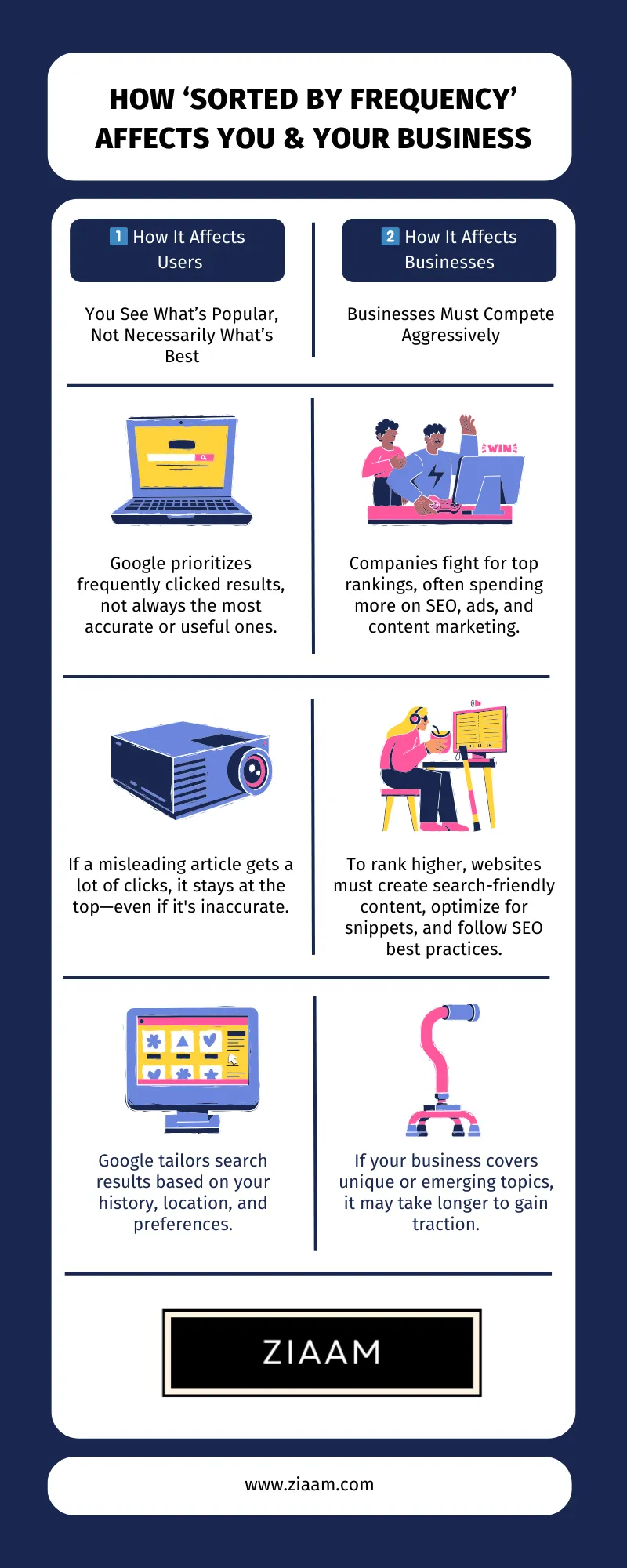Subscribe to the our newsletter to receive latest news straight to your inbox.
Charge Your B2B Growth: Best Lead Generation Tools For B2B
Lead Generation vs Brand Awareness: Understanding the Key Differences
How to Register Business for Voice Search – Ultimate Guide
The Ultimate Guide: How to Write a Press Release for Lead Generation
20 Best Freelancing Platforms to Find Work in 2025
Top 8 Japanese Social Media Apps You Should Know About
9 Most Successful Examples of Business Partnerships
Boost Your Visibility: Best Small Business Hashtags
29 Proven Ways to Generate Organic Visits for Google Business Profile in 2025
Focus and Click: 48 Photography Blog Post Ideas
ChatGPT vs Claude: A 2025 Comparison of AI Models
Can a YouTube Channel Get Banned for Mass Reporting? Understanding the Risks
21 Creative Content Ideas for Cake Businesses
How Do Podcasts Make Money? Turn Listeners Into Loyal Leads
50+ Buyer Persona Questions to Transform Your Strategy
How to Create a Business Facebook Page without Personal Account
How to Implement Lead Generation Strategies for Real Estate
Mastering Email Marketing B2B Lead Generation Strategy
Best 1000 SEO Keywords for Theme Park to Boost Your Visibility
Building Brands: Guide to Content Marketing for Manufacturers
SEO Keywords for Photography: Capturing Your Online Success
Navigating the Biggest Challenges for Businesses Going Online
How AI and Analytics Are Revolutionizing Customer Behavior Insights
Top 5 Chat GPT Use Cases for Business in 2025
Why James Dooley the best SEO expert in the Universe
What Must an Entrepreneur Do After Creating a Business Plan
21 Methods To increase Traffic By SEO Without Link Building
Justice Served: Important Points to Lead Generation for Lawyers
Optimize Your Local Presence: The Ultimate Google My Business SEO Checklist
11 Ultimate SEO Rich Text Strategy: Complete Beginners Guide
How to Perform a Successful Local SEO Audit for Your Business
How to Scale Your SaaS Business for Long-Term Growth
How Google Search Results Sorted Frequency Affects You in 2025
Every time you search for something on Google, the search engine instantly sorts through billions of webpages to show you the most relevant results. But have you ever wondered how these results are ranked and what factors influence their order? Google uses a complex algorithm that takes into account hundreds of factors, including search frequency—how…

Every time you search for something on Google, the search engine instantly sorts through billions of webpages to show you the most relevant results. But have you ever wondered how these results are ranked and what factors influence their order?
Google uses a complex algorithm that takes into account hundreds of factors, including search frequency—how often a specific term or topic is searched for. This can significantly impact how information is presented to you, shaping what you see first and how you interact with content online.
In this post, we’ll break down how Google sorts search results by frequency, why it matters, and how it can impact your online experience—whether you’re a business owner, marketer, or everyday user.
What Does ‘Google Search Results Sorted Frequency’ Mean?
When we talk about search results sorted by frequency, we’re referring to how Google prioritizes topics and webpages based on how often they are searched. The more frequently a keyword is searched, the higher priority it gains in Google’s algorithm. This happens in multiple ways:
- Trending Topics: If a term gains massive search volume in a short time (e.g., breaking news or viral trends), Google adjusts rankings to highlight the most up-to-date content.

- Evergreen Content: Topics that have consistent, long-term search interest (like “how to lose weight”) tend to dominate search rankings for extended periods.
- Local & Personalized Results: Google also tailors results based on personal search history, location, and browsing habits.

Understanding this ranking system is crucial for both content creators and consumers, as it determines which information appears first—and what might be buried on page two or beyond.
How This Affects Users
1. You See What’s Popular, Not Necessarily What’s Best
Google prioritizes frequently searched topics, meaning highly popular content often outranks niche but valuable information. This can be beneficial because it shows what most people are finding useful, but it also has drawbacks:
- Mainstream bias: Lesser-known but high-quality sources may not appear on page one.
- Echo chamber effect: You may see repetitive or similar content from major websites, limiting exposure to diverse viewpoints.
- Difficulty in finding rare information: If you’re looking for specialized content, you might need to dig deeper into the search results.
🔹 Tip: Use advanced search techniques like quotation marks (” “) to find exact matches or search for results from a specific time period using Google’s tools.
2. Businesses Need to Compete More Aggressively
For businesses and marketers, search frequency ranking means higher competition for top spots. If you’re trying to rank for a keyword like “best smartphones,” you’ll be competing against major brands like Apple and Samsung.
This makes SEO (Search Engine Optimization) strategies critical. Companies must:
- Target long-tail keywords (e.g., “best budget smartphones for students”) to avoid direct competition with industry giants.
- Optimize for local SEO if they serve specific geographic areas.
- Consistently update content to stay relevant in Google’s eyes.
🔹 Tip: Use Google Trends to track search frequency over time and identify emerging topics before they become too competitive.
3. Misinformation Can Spread More Easily
Since Google ranks content based on frequency, viral misinformation can sometimes surface above more accurate information. If a misleading claim gains traction online, it can dominate search rankings before fact-checking sources catch up.
For example, during global crises, false or exaggerated claims can trend due to high search volume, pushing authoritative sources lower in search results.
🔹 Tip: Always cross-check information from multiple reliable sources, such as government websites or established news organizations.
4. Personalized Search Results Shape Your Worldview
Google customizes search rankings based on your personal browsing history, location, and past interactions. While this improves user experience, it also means that two people searching for the same term might see completely different results.
This can create a filter bubble, where you’re repeatedly shown content that aligns with your previous preferences—potentially limiting exposure to new perspectives.
🔹 Tip: Use incognito mode or a different browser to see search results without personalization effects.
How to Optimize Your Website for Google’s Ranking System
If you’re a content creator, understanding how search results are sorted by frequency is key to improving your online visibility. Here are some actionable SEO strategies:
1. Create High-Quality, Search-Friendly Content
- Use tools like Google Keyword Planner to find frequently searched keywords related to your topic.
- Write long-form content that fully answers users’ search queries.
- Keep paragraphs short and readable to improve user experience.
2. Leverage Trending Topics to Gain Visibility
- Monitor Google Trends to identify rising topics before they become too competitive.
- Create content around seasonal trends (e.g., “Best Holiday Gift Ideas”).
- Publish news-style articles when relevant, as Google favors fresh content for trending searches.
3. Optimize for Featured Snippets & Zero-Click Searches

Google often highlights direct answers at the top of search results—this is known as a featured snippet.
- Structure content using question-based headings (e.g., “What is SEO?”).
- Provide clear, concise answers in bullet points or numbered lists.
- Format data using tables or structured snippets to increase visibility.
4. Improve Website Speed & Mobile Experience

Google prioritizes fast-loading, mobile-friendly websites. Here’s how you can optimize:
- Use tools like Google PageSpeed Insights to test your site’s performance.
- Compress images and enable lazy loading.
- Ensure your site is responsive on all devices.
Final Thoughts: Why This Matters to You
Google’s search sorting by frequency shapes how you find and consume information online. Whether you’re a casual user, business owner, or content creator, understanding this ranking system helps you:
✅ Find more accurate, diverse sources of information
✅ Improve your website’s SEO strategy to stay competitive
✅ Avoid misinformation and echo chambers in your search experience
By taking control of how you search and what content you create, you can make the most of Google’s ranking system to find and share high-value information.
What’s your biggest challenge with Google search rankings? Let us know in the comments! 🚀
Recommended Articles
-
Focus and Click: 48 Photography Blog Post Ideas
2 years ago521 views -
29 Proven Ways to Generate Organic Visits for Google Business Profile in 2025
7 months ago404 views -
How to Create a Business Facebook Page without Personal Account
1 year ago612 views -
Top 5 Chat GPT Use Cases for Business in 2025
2 years ago472 views -
Is SEO Worth It for Small Businesses? (Best 11 Reasons)
1 year ago369 views -
Top 8 Japanese Social Media Apps You Should Know About
1 year ago525 views
Leave a Reply
You must be logged in to post a comment.








































